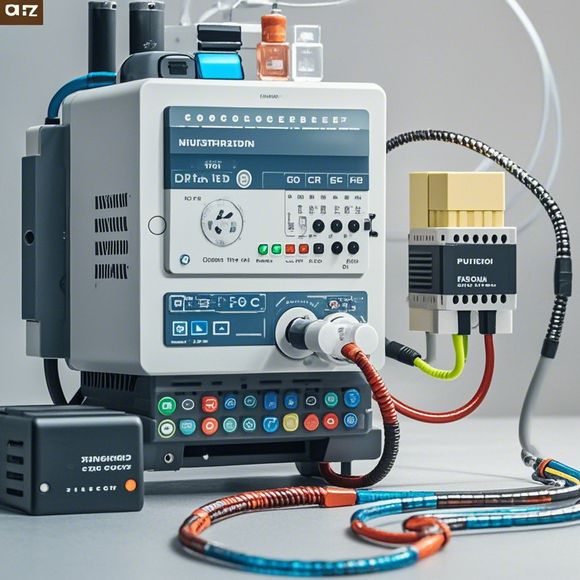PLC Controllers: The Key Players in Modern Industrial Automation
PLC Controllers: The Key Players in Modern Industrial AutomationIn the modern industrial automation landscape, Programmable Logic Controllers (PLCs) have emerged as the backbone of manufacturing efficiency. These versatile controllers are designed to handle complex tasks such as monitoring and controlling industrial processes, making them essential for any modern factory.PLCs offer a range of benefits over traditional control systems, including flexibility, scalability, and reliability. They can be programmed to perform specific functions, allowing for customization to meet the unique needs of each industrial application. Additionally, PLCs are often equipped with advanced features such as real-time data analysis and predictive maintenance, which can help optimize production and reduce downtime.As automation becomes increasingly important in today's economy, PLCs play a crucial role in enabling businesses to remain competitive. By providing reliable and efficient control solutions, they help companies streamline their operations and improve overall productivity.
Hello everyone! Today, I'd like to discuss a crucial component of modern industrial automation - the Programmable Logic Controller (PLC). So, let's dive into the world of PLC controllers and understand their significance in today's manufacturing landscape.

Firstly, let's define what a PLC is. A PLC, or Programmable Logic Controller, is a digital computer system that can be programmed to perform a wide range of tasks. Unlike traditional mechanical switches and relays, PLCs are programmable, allowing for precise control over complex processes. They are designed to work with various types of sensors, actuators, and communication protocols, making them ideal for a variety of applications in industries such as manufacturing, automotive, and healthcare.
Now, let's talk about the importance of PLC controllers in modern industrial automation. Firstly, they offer high levels of flexibility and adaptability. With just a few simple code changes, PLCs can handle different types of tasks, making them ideal for changing production requirements. This feature is particularly useful in industries where demand for products can fluctuate significantly. For example, a PLC-controlled assembly line can be easily modified to meet the demands of new product lines, without having to invest in costly equipment upgrades.
Another significant advantage of PLC controllers is their ability to optimize process efficiency. By controlling multiple variables simultaneously, PLCs can help reduce waste and improve overall productivity. For instance, in a textile mill, a PLC can monitor the speed of the spinning wheel and adjust it accordingly to ensure consistent quality output. This not only saves time but also reduces the risk of defects in the final product.

Moreover, PLC controllers are highly reliable and durable. Thanks to their compact size and advanced hardware, they can withstand harsh environments and operate for long periods without needing frequent maintenance. This makes them ideal for applications where reliability is critical, such as in critical infrastructure projects or in hazardous environments.
In addition to these advantages, PLC controllers also offer cost savings. While initial installation costs may seem high, the long-term benefits of reduced downtime, improved efficiency, and lower maintenance costs make them an attractive investment for many businesses. Furthermore, by using PLCs, companies can streamline their operations and reduce labor costs, which ultimately leads to increased profitability.
However, like any technology, there are some challenges associated with using PLC controllers. One of the main concerns is the need for skilled technicians to maintain and troubleshoot the devices. However, with proper training and support from manufacturers and service providers, this issue can be addressed effectively. Another potential challenge is the complexity of programming and configuration. While PLCs are relatively easy to program, they require careful consideration of various factors such as safety regulations, user preferences, and environmental conditions.

In conclusion, PLC controllers are an essential part of modern industrial automation. Their flexibility, efficiency, and reliability make them ideal for a wide range of applications. While there are challenges associated with their use, with proper planning and support, businesses can reap the benefits of these powerful tools. So, if you're looking to streamline your operations and increase efficiency, consider investing in PLC controllers. Thank you for listening!
Content expansion reading:
Articles related to the knowledge points of this article:
PLC Controller Wiring Guideline
Plumbers Rule! The Role of PLC Controllers in the World of Waterworks
Connecting a PLC Controller to Your Computer
PLC Controllers: A Comprehensive Guide to Understanding Their Prices